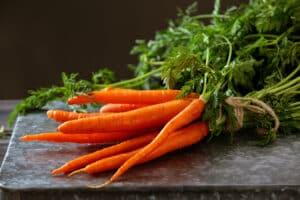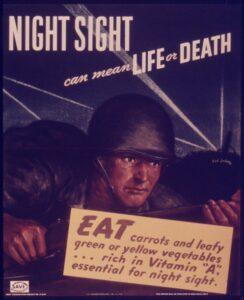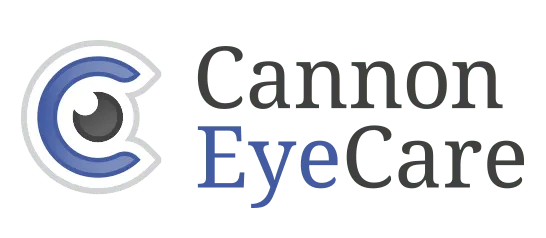Best Foods for Eye Health

What are really the best foods for eye health?
Oh, and eating carrots will improve your sight, right?
The story about carrots making people see better in the dark dates back to World War II when the British forces developed a new technology called Airborne Interception radar. They wanted to keep this new technology secret because it suddenly allowed the Brits to successfully shoot down incoming German bombers. So the Brits created a widespread propaganda campaign, claiming that their fighter pilots had a super-human vision from eating lots of carrots. Eating carrots was so widely touted as the reason for better sight in this WWII propaganda that the world was tricked into thinking carrots did give us miraculous night vision. We are not sure if the German generals were also fooled. A friend of our practice who grew up in England in the 1960s informed us that people used to talk up British pilot John “Cat’s Eyes” Cunningham and his use of carrots to see incoming German bombers well in the dar as a turning point in the war. This blog post will get you up to speed on the latest science related to foods for eye health.

One of the many advertisements that appeared during WWII encouraged the consumption of carrots for help seeing during the blackouts. Image courtesy of Flickr user US National Archives Bot
The myth about carrots still persists today, many decades after WWII. This war propaganda does contain one grain of truth. Carrots and other nutritious foods help our eyes stay healthy, even though they don’t really give us super-human eyesight.
How Healthy are Carrots for Our Eyes, Really?
Carrots are genuinely good for us. Along with other yellow and orange leafy greens and vegetables, they are a really good source of Vitamin A. They get their color from beta-carotene, a compound our digestive tract uses to produce Vitamin A. Our eyes use vitamin A to help convert light into brainwaves. This nutrient is also incorporated into our corneas for added strength. A vitamin A deficiency contributes to as many as half a million children going blind each year. So yes, in theory, a person with a vitamin-A deficiency and is experiencing vision loss could be helped by eating carrots.
Sweet Potatoes and Oranges
Antioxidants like vitamins C and E are key to overall health (including eye health). Vitamin C lowers the risk of developing early cataracts. There is some early evidence that it may slow the progression of age-related macular degeneration (AMD). Citrus fruits such as oranges, grapefruit, and limes are major sources of vitamin C. Vitamin E helps protect our eyes from “free radicals” (molecules that disrupt healthy tissue). Sweet potatoes are a great source of Vitamin E.
Eggs and Leafy Greens are Excellent Foods for Eye Health
Many studies have demonstrated that people who get plenty of Lutein and Zeaxanthin in their diets have a lower risk of Age Related Macular Degeneration – AMD. When you consider that Age Related Macular Degeneration is the leading cause of blindness in Americans over age 65, you might want to have a salad. Go for the spinach, kale, and arugula, not the iceberg lettuce. Summer squash, peas, brussels sprouts, broccoli and egg yolks are also good sources of lutein and zeaxanthin. These nutrients can also slow cataract progression.
Eating Fish can Help Your Sight?
Studies have shown that having Omega-3 fatty acids in the diet is important for the development of the visual tracts in the brain, as well as retinal function. Optimal brain function and a healthy immune system rely on getting plenty of Omega-3 fatty acids in adults as well as kids. The best source for Omega-3s is fish, especially fatty cold-water fish such as wild-caught salmon. Other good options include sardines, Mackerel, Cod, Herring, Trout, and canned Tuna
Oysters contain lots of zinc, which acts as a vehicle to transport vitamin A from our livers to our retinas. A diet rich in vitamin A is much more beneficial with zinc in the same diet to transport vitamin A to where it needs to be. You can also find zinc in beans, nuts, and meats in case oysters aren’t your thing.
There’s More To Eye Health than Eating Well!
Having a healthy diet stacks the deck in favor of long-term eye health, but it’s not all you need to do. Eye problems can happen in young healthy people and prevention is key. So book annual eye exams for yourself and your family, because eye doctors are much better at helping you keep the vision you have than at restoring vision once it’s been lost.
Sincerely, Dr. Mark J. Cannon, optometrist @ Cannon EyeCare (at Market Optical) in Seattle, Washington

What are really the best foods for eye health?
Oh, and eating carrots will improve your sight, right?
The story about carrots making people see better in the dark dates back to World War II when the British forces developed a new technology called Airborne Interception radar. They wanted to keep this new technology secret because it suddenly allowed the Brits to successfully shoot down incoming German bombers. So the Brits created a widespread propaganda campaign, claiming that their fighter pilots had a super-human vision from eating lots of carrots. Eating carrots was so widely touted as the reason for better sight in this WWII propaganda that the world was tricked into thinking carrots did give us miraculous night vision. We are not sure if the German generals were also fooled. A friend of our practice who grew up in England in the 1960s informed us that people used to talk up British pilot John “Cat’s Eyes” Cunningham and his use of carrots to see incoming German bombers well in the dar as a turning point in the war. This blog post will get you up to speed on the latest science related to foods for eye health.

One of the many advertisements that appeared during WWII encouraged the consumption of carrots for help seeing during the blackouts. Image courtesy of Flickr user US National Archives Bot
The myth about carrots still persists today, many decades after WWII. This war propaganda does contain one grain of truth. Carrots and other nutritious foods help our eyes stay healthy, even though they don’t really give us super-human eyesight.
How Healthy are Carrots for Our Eyes, Really?
Carrots are genuinely good for us. Along with other yellow and orange leafy greens and vegetables, they are a really good source of Vitamin A. They get their color from beta-carotene, a compound our digestive tract uses to produce Vitamin A. Our eyes use vitamin A to help convert light into brainwaves. This nutrient is also incorporated into our corneas for added strength. A vitamin A deficiency contributes to as many as half a million children going blind each year. So yes, in theory, a person with a vitamin-A deficiency and is experiencing vision loss could be helped by eating carrots.
Sweet Potatoes and Oranges
Antioxidants like vitamins C and E are key to overall health (including eye health). Vitamin C lowers the risk of developing early cataracts. There is some early evidence that it may slow the progression of age-related macular degeneration (AMD). Citrus fruits such as oranges, grapefruit, and limes are major sources of vitamin C. Vitamin E helps protect our eyes from “free radicals” (molecules that disrupt healthy tissue). Sweet potatoes are a great source of Vitamin E.
Eggs and Leafy Greens are Excellent Foods for Eye Health
Many studies have demonstrated that people who get plenty of Lutein and Zeaxanthin in their diets have a lower risk of Age Related Macular Degeneration – AMD. When you consider that Age Related Macular Degeneration is the leading cause of blindness in Americans over age 65, you might want to have a salad. Go for the spinach, kale, and arugula, not the iceberg lettuce. Summer squash, peas, brussels sprouts, broccoli and egg yolks are also good sources of lutein and zeaxanthin. These nutrients can also slow cataract progression.
Eating Fish can Help Your Sight?
Studies have shown that having Omega-3 fatty acids in the diet is important for the development of the visual tracts in the brain, as well as retinal function. Optimal brain function and a healthy immune system rely on getting plenty of Omega-3 fatty acids in adults as well as kids. The best source for Omega-3s is fish, especially fatty cold-water fish such as wild-caught salmon. Other good options include sardines, Mackerel, Cod, Herring, Trout, and canned Tuna
Oysters contain lots of zinc, which acts as a vehicle to transport vitamin A from our livers to our retinas. A diet rich in vitamin A is much more beneficial with zinc in the same diet to transport vitamin A to where it needs to be. You can also find zinc in beans, nuts, and meats in case oysters aren’t your thing.
There’s More To Eye Health than Eating Well!
Having a healthy diet stacks the deck in favor of long-term eye health, but it’s not all you need to do. Eye problems can happen in young healthy people and prevention is key. So book annual eye exams for yourself and your family, because eye doctors are much better at helping you keep the vision you have than at restoring vision once it’s been lost.
Sincerely, Dr. Mark J. Cannon, optometrist @ Cannon EyeCare (at Market Optical) in Seattle, Washington
Pike Place Office
1906 Pike Pl Unit 8-b,
Seattle, WA 98101
University Village Office
2602 NE University Village St,
Seattle, WA 98105
Pike Place Office Hours
Monday
Closed
Tuesday
10:00 am - 5:00 pm
Wednesday
Closed
Thursday
10:00 am - 5:00 pm
Friday
10:00 am - 5:00 pm
Saturday
10:00 am - 5:00 pm
Sunday
Closed
University Village Office Hours
Monday
10:00 am - 6:00 pm
Tuesday
10:00 am - 6:00 pm
Wednesday
10:00 am - 6:00 pm
Thursday
10:00 am - 6:00 pm
Friday
10:00 am - 6:00 pm
Saturday
10:00 am - 6:00 pm
Sunday
Closed
